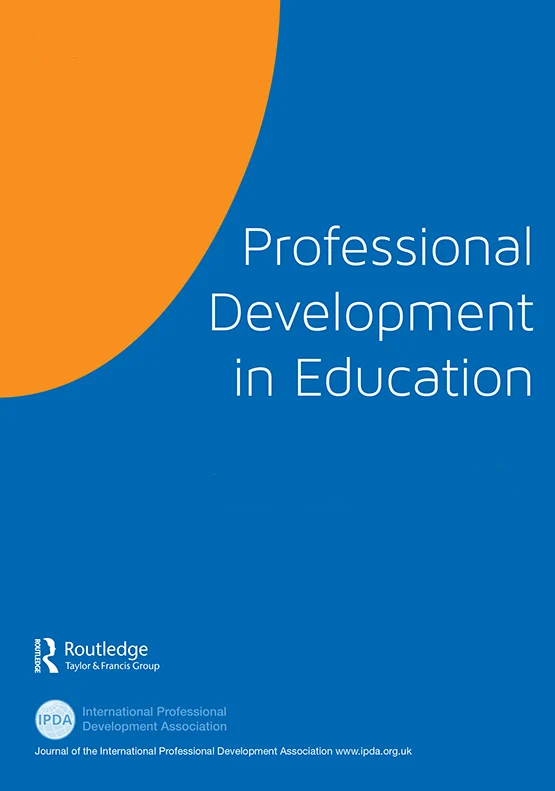
Professional Development in Education is a fully-refereed international academic journal that publishes original articles on professional learning and development (PLD). PLD, for us, has a wide brief, encompassing research into:
- the initial preparation of professionals; induction into professional roles;
- the processes of mentoring and coaching;
- models of and approaches to professional learning;
- the leadership of professional learning and how leaders themselves learn;
- the evaluation of the impact or otherwise of professional learning;
- the analysis of local, regional and national policies relating to PLD;
- and the work of higher education, independent agencies and training and development organizations in supporting and promoting the continuing development of professionals.
We give an equally wide brief to the term “in Education” in the journal’s title. Although the main focus of articles in the journal is likely to be teacher education, we welcome contributions which discuss the policy and practice of PLD in other professions where the focus of the article is professional learning. PDiE is one of two academic journals owned by The International Professional Development Association and published by Routledge (the other being Practice: Contemporary Issues in Practitioner Education).
More than a journal, our focus is on professional learning, and we believe that PL is best promoted collaboratively by engaging with others. We aim to be an active member of a critical global educational community and, as part of this, we seek to contribute to developing ‘alternative discourses’ to recognised concepts, theories and practice. As well as publishing academic articles, the PDiE Editorial Board lead seminars and symposia which we aim to make transformational and provocative by engaging with others in learning.
We see leadership as fundamental to professional learning, enabling (not inhibiting) critical perspectives and futures thinking. The Leadership for Professional Learning symposium is, for us, an excellent opportunity to celebrate perspectives from different cultural backgrounds and political contexts, sharing individual and institutional approaches which explore challenges and failures as well as successes.
Our most recent symposium (ECER 2018) explored whether current discourses are hegemonic and created a space for contributors to provide perspectives on alternatives to the status quo. The strands and interactive format of the LfPL symposium are designed to stimulate similar learning opportunities and we are delighted to support and be part of this event.
